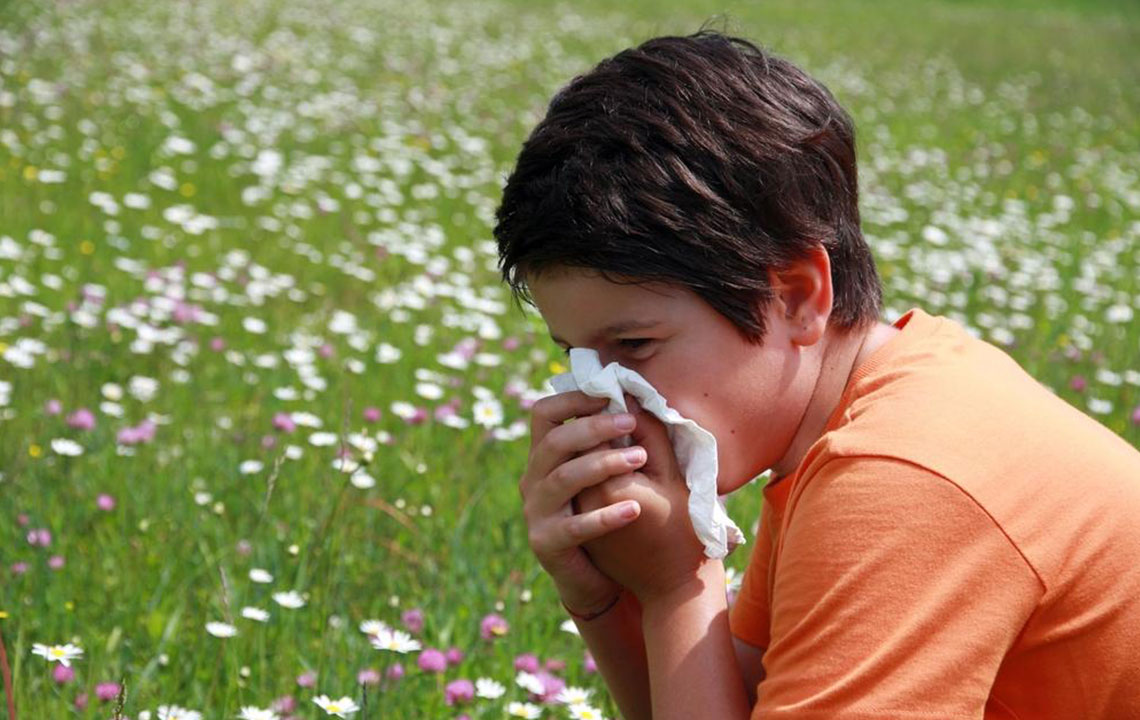Comprehensive Guide to Allergic Sore Throat: Causes, Symptoms, and Effective Remedies
This comprehensive guide explores allergic sore throat, detailing its causes, symptoms, and effective remedies. Learn how allergies impact the throat, identify common triggers, and discover both medical and home solutions to alleviate discomfort. Managing allergies proactively can prevent persistent sore throat issues and improve overall well-being.

Comprehensive Guide to Allergic Sore Throat: Causes, Symptoms, and Effective Remedies
Understanding and Managing Allergic Sore Throat
A sore throat is a common discomfort that affects many individuals at various points in their lives. While most sore throats are caused by viral or bacterial infections, a significant number are linked to allergic reactions. Recognizing the difference between these causes is crucial for effective treatment and relief. An allergic sore throat can be persistent and often accompanied by other allergy symptoms, making it essential to understand its underlying causes and explore suitable remedies.
What Is an Allergic Sore Throat?
An allergic sore throat manifests as irritation, soreness, or dryness in the throat, often accompanied by a scratching or burning sensation. Unlike sore throats caused by infections, allergic sore throats tend to be persistent and recur seasonally or when exposed to specific allergens. The underlying mechanism involves an immune response to allergens such as pollen, dust, pet dander, or mold, which triggers inflammatory processes in the throat tissues.
One of the main contributors to allergy-related sore throats is post-nasal drip. Allergic reactions often lead to sinus congestion, which causes mucus to drain down the back of the throat, irritating the lining and intensifying discomfort. This persistent drip can result in symptoms such as a burning sensation, difficulty swallowing, and even mild fever or swollen lymph nodes in some cases. Recognizing these signs is important for timely intervention and management.
Common Causes of Allergic Sore Throat
Seasonal Allergens – Pollen from trees, grasses, or weeds during specific seasons can trigger allergic responses, leading to sore throats.
Indoor Allergens – Dust mites, pet dander, mold spores, and indoor pollutants often cause ongoing allergy symptoms, including sore throats.
Irritants and Environmental Factors – Cigarette smoke, chemical fumes, pollution, and strong odors can irritate the throat and exacerbate allergy symptoms.
Food Allergies – Sometimes, certain foods can induce allergic reactions that include throat irritation as part of broader allergy symptoms.
When allergies are responsible for throat irritation, the body reacts by producing excess mucus, which leads to post-nasal drip. This increased mucus flow down the back of the throat causes persistent irritation, soreness, and a dry or scratchy feeling. The mucus associated with allergies is usually thicker and more bothersome than that caused by common colds, making symptoms more prolonged and challenging to manage.
Effective Treatment Strategies for Allergic Sore Throat
Addressing an allergic sore throat involves both relieving symptoms and controlling the underlying allergic response. Common symptoms include sneezing, nasal congestion, itchy eyes, watery eyes, and sometimes mild fever. The first line of treatment often includes antihistamines, which block the release of histamines—the chemicals responsible for allergy symptoms. Decongestants may also be used to reduce nasal swelling and facilitate easier breathing.
Identifying specific allergens through skin or blood tests allows individuals to avoid known triggers, reducing the frequency and severity of allergic reactions, including sore throats. For persistent allergic symptoms, immunotherapy or allergy shots can be highly effective. These treatments gradually desensitize the immune system to specific allergens, leading to fewer symptoms over time and remarkable relief from recurring sore throats caused by allergies.
Long-term allergy management further includes environmental control measures such as using air purifiers, keeping living spaces clean and dust-free, and avoiding exposure to known irritants. These practices, combined with medical treatment, can significantly improve quality of life for allergy sufferers.
Home Remedies for Temporary Relief
While medical treatments are essential for managing allergies, several home remedies can provide immediate relief from sore throat discomfort. Drinking warm fluids like herbal teas, broths, or warm water with honey can soothe inflamed tissues and reduce dryness. Gargling with warm salt water helps alleviate soreness and flush out irritants. Using saline nasal sprays or rinses such as neti pots can clear nasal passages and diminish post-nasal drip. Maintaining hydration, avoiding irritants like smoke, and resting are also important. However, if symptoms persist beyond a few days or worsen, consulting a healthcare professional is crucial for proper diagnosis and treatment.





